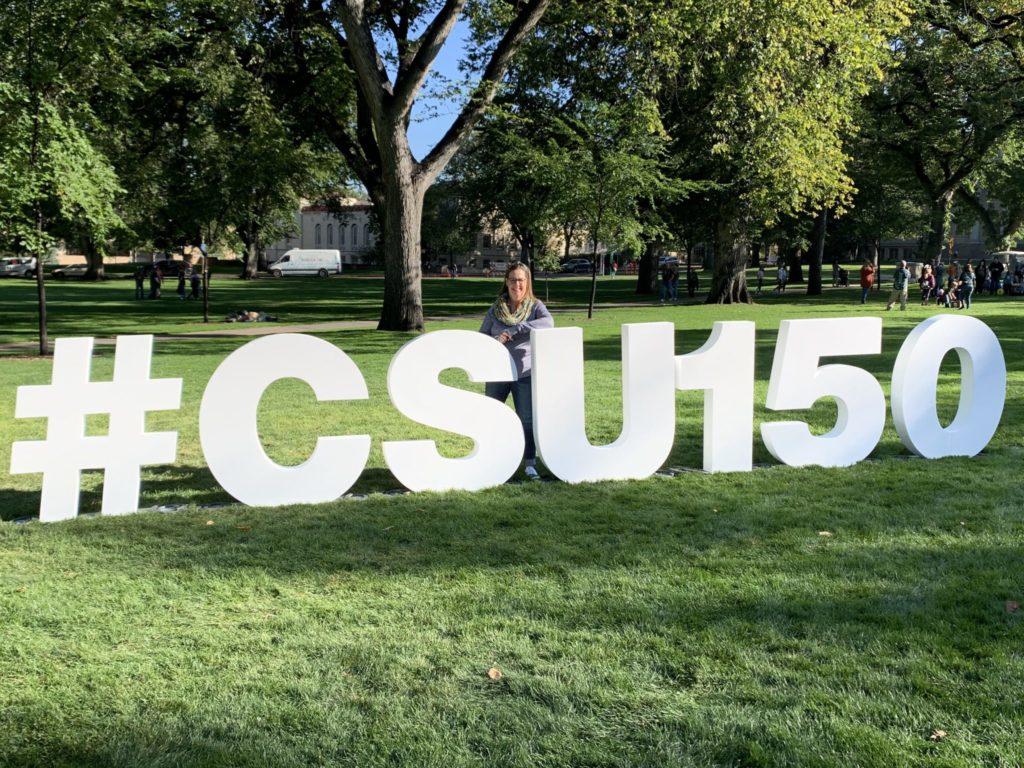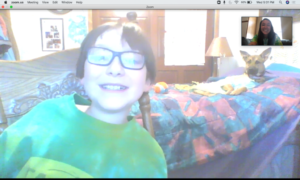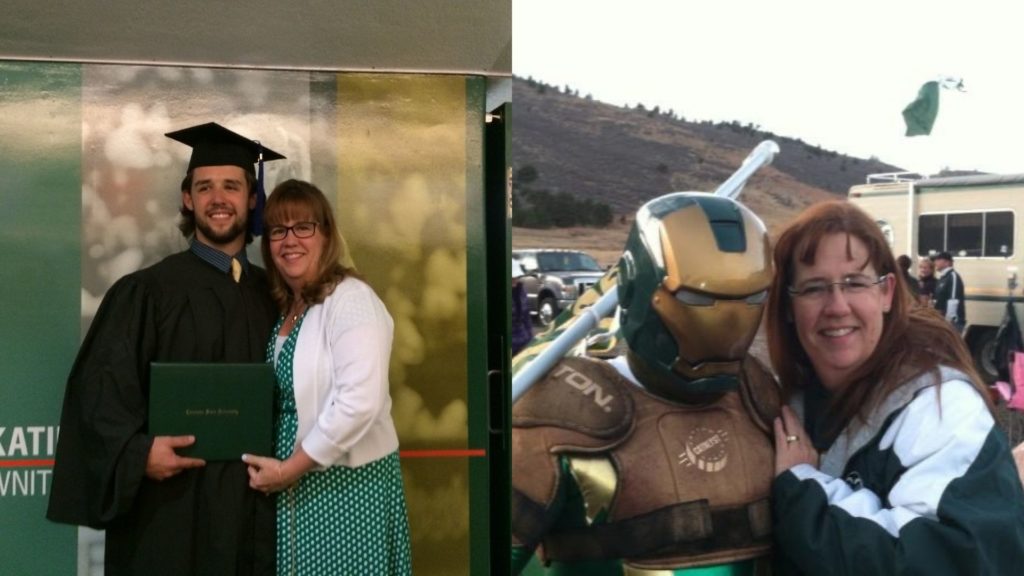
Campus Connections donor, Stephani Hardon, at the CSU sesquicentennial celebration.
After 30 years in public education, Stephani Hardon, a Colorado native and a Colorado State University alumna, was ready to dedicate her retirement to volunteer work. Returning to her alma matter, she was introduced to Campus Connections, immediately falling in love with the program.
Campus Connections is a youth mentoring program at Colorado State University founded in 2009 in response to a community request for additional services for youth experiencing difficulties.
Inspiring youth to go to college
“Campus Connections really gets at the heart of what I think are some of the issues with public education, with kids who are at danger of falling through the cracks,” said Hardon. “So many times, they don’t have a positive role model and don’t have a connection, a place where they feel empowered to go above and beyond what their family situation is.”
Youth in Campus Connections are referred from the juvenile system, schools, human services, and many other providers who recognize the benefits of therapeutic mentoring for youth who are exposed to adversities. CSU students serve as the youth mentors by enrolling in the Campus Connections three-credit course, which includes training prior to mentor relationships are established.
“When I watched the relationships between the CSU students and the youth in the program, it was clear they both cared about each other,” said Hardon. “Some of the youths have lived in Fort Collins their whole life and have never seen the CSU campus.”

The mentoring structure includes mentor-mentee pairs being part of a mentor family (four pairs) with youth of similar ages, exposure to a college campus, academic support, dinner, social activities, and integrated mental health services.
“This mentoring structure and exposure to the university helps those kids realize that they can do this, that they want to do this,” said Hardon. “They have a reason to dream about going to college and know someone is looking out for them.”
Hardon first learned about Campus Connections through a desire to volunteer in retirement. CSU introduced her to the program to be boots on the ground for two of their events around graduation: a clothing drive and a graduation dinner for the youth. Through these two experiences, Hardon realized that more than volunteer work, Campus Connections needed funding to keep the program alive and to continue helping as many youths as possible.
“The mentors and Campus Connections volunteers were very gracious and very welcoming,” said Hardon. “But it was clear that they knew what they were doing. They were a well-oiled machine.”
That’s when Hardon realized her role with Campus Connections was not as a volunteer, but as a donor.
Leaving the world a better place
“Stephani’s support of Campus Connections has provided invaluable funding to allow us to continue to serve the most vulnerable youth in our community,” said Jen Krafchick, Campus Connections Director. “This funding also supports the overall program, which provides meaningful opportunities for CSU students to gain important professional experiences as mentors and important leadership skills. Many of these students will work with vulnerable youth after graduation in community agencies. We are so grateful for Stephani’s support of Campus Connections.”
Hardon and her husband, John, met in high school in the Thornton area of Colorado. In December of her second year as a CSU undergraduate, the two were married.
Hardon’s family always said she would go into education, following a family line of educators including her parents and grandparents. Exploring different career paths and majors at CSU, and determined to do something different, Hardon soon realized that her passion for helping children was exactly where she needed to be. In her third year, Hardon joined the “Department of Human Growth and Family Studies,” now the “Department of Human Development and Family Studies,” with a focus in early childhood education.
Once she graduated, Stephani and John Hardon moved back to the area they met and grew up. There, as her family predicted, Hardon went into public education, spending 30 years giving back to the community she and John grew up in. Together, they had two boys who eventually also found their way to CSU.

Hardon with her sons who both attended CSU.
“Volunteering and contributions have always been an incredible piece of me,” said Hardon. “I do it to be part of something bigger than myself.”
The Hardons have decided to leave a future estate gift to Campus Connections, ensuring they are giving back even when they are gone.
“You can’t take the funds with you when you go,” said Hardon. “You can’t take the house, clothes, but you can leave the world a better place, and I can do that by empowering Campus Connections to keep doing the great work they’re doing with this gift.”
Need for Campus Connections donors
Being a Campus Connections donor supports meaningful relationships and support for youth participants and their families and engages CSU students in the life of our community. To ensure the longevity of Campus Connections, the program has set a goal to raise a $1 million endowment.
To donate, visit Campus Connections.
If you are a student and are interested in becoming a mentor for Spring 2022, you can find more information on Campus Connections’ mentor website.
The Department of Human Development and Family Studies is part of CSU’s College of Health and Human Sciences.